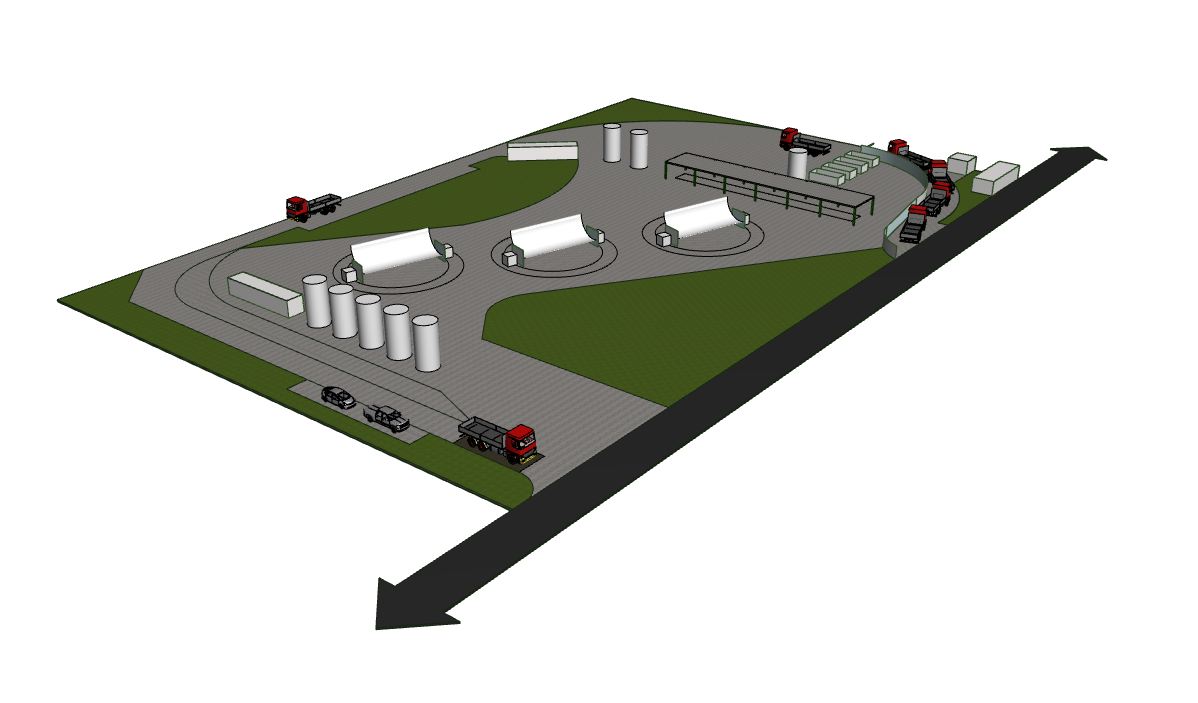How SMO works:
The premise of a solar microwave oven is simple: harness the power of the sun’s rays to process waste into various value-added products. PEPS’ solar microwave takes advantage of an existing innovation: pyrolysis, the thermochemical reaction that decomposes organic and other waste in a zero-oxygen chamber using high, consistent temperatures. The product that remains is smoked, not burnt, and one that maintains a high energy content thanks to carbon and other materials.
El Baroudi is quick to point out that pyrolysis is nothing new — PEPS’ innovation is that the pyrolysis within their reactor requires no additional energy, making it a 100% green technique. Typically, additional electricity or wood burning is required to stoke the reactor temperature to the required 600+ degrees. “We use mirrors to concentrate the energy of the sun and get the reactor to the required temperatures,” El Baroudi explains of their innovation. “With our technology, we are able to transform big quantities of waste using mainly solar energy. We have the first machine worldwide able to do this.”
For now, the waste is primarily organic, and PEPS has an early-stage partnership with BioChar Maroc, a company with expertise in collecting organic waste from farmers in Agadir, an agriculturally-rich part of Morocco. Beyond high-in-carbon agricultural waste, PEPS has also been processing domestic waste from around Marrakesh, lessening the load on the city’s landfills.
PEPS’ SMO process has three main outputs: biochar, powdered charcoal which is a valuable fertilizer; activated carbon, a highly-coveted ingredient found in water treatment filters and some medications; and syngas, which can be converted into electricity and used to power the places where the waste originated. A truly circular economy.
With their current working prototype, PEPS can transform 27 tons of waste into 18 tons of charcoal each day. The company is currently developing its system for upgrading that product into activated carbon and syngas.
Expansion across Africa:
One of the most promising features of PEPS’ SMO is its mobility.
The machine fits inside a 45-foot shipping container and was designed specifically for volatile weather environments. “From the very beginning we asked our engineers to work on a solution that could be easily transported and installed,” says El Baroudi. “With our design, the mirrors can be protected within the container and easily set up again for production. We don’t need this in Morocco, but it was important for us to build technology that could be easily implemented in other regions without problems.”
Sustainable waste management, particularly the issue of organic waste disposal, is a challenge across the African continent. Within that, PEPS sees cities ripe with opportunity — about two-thirds of waste produced in major African cities is organic, not ideal for recycling or compost, but perfectly primed to be transformed into biochar, activated carbon, or energy. “Our technology has high impact in Morocco but also on the whole continent. We just need the right partners to go with us on this adventure,” El Baroudi says.





